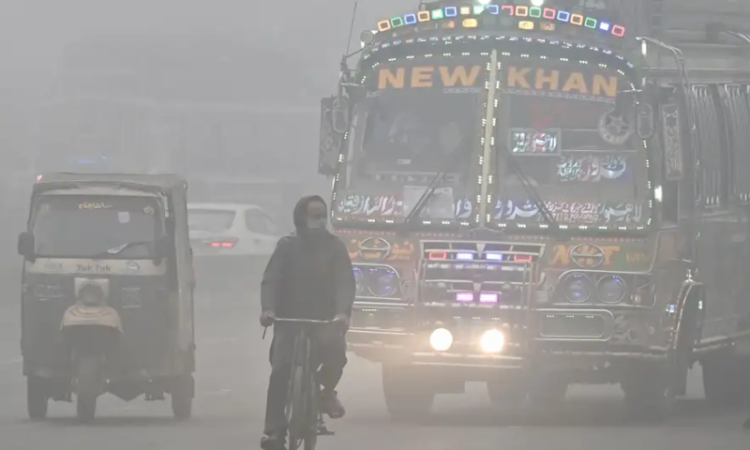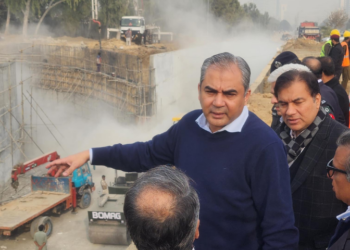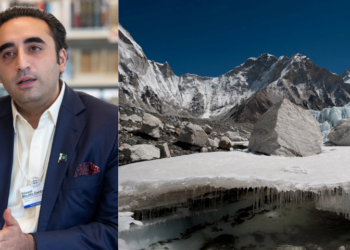Lahore, November 13, 2024- The air pollution crisis in Punjab’s capital Lahore has worsened, pushing the city to second place on global pollution charts, while New Delhi claimed the top position with the world’s poorest air quality on Wednesday. The toxic smog blanketing these regions has led to severe health and environmental challenges.
According to IQAir, a Swiss air quality monitoring group, Lahore’s Air Quality Index (AQI) was measured at 393, while New Delhi reached a staggering 721 as of 8 a.m., indicating severe pollution levels. Lahore, a bustling city of 14 million located near Pakistan’s border with India, is no stranger to poor air quality. However, this month has seen unprecedented levels of smog, spurring authorities to implement extraordinary measures.
In response to the worsening conditions, authorities have closed schools and banned outdoor activities across several districts, including Multan, Faisalabad, and Gujranwala, until November 17. Later, these restrictions were extended to five more districts—D.G. Khan, Bahawalpur, Sahiwal, Sargodha, and Rawalpindi—aiming to protect children from the hazardous morning air.
The provincial Environmental Protection Agency stated the decision was driven by a “dramatic increase in cases of respiratory diseases, allergies, and eye irritations,” as pollution-related ailments surged throughout the province.
Multan, a city of several million situated 350 kilometers from Lahore, has been particularly impacted, with its AQI crossing the 2,000 mark last week—a shocking record that has left residents deeply concerned. According to AQI standards, an index above 300 is considered “hazardous” to health, and cities in Pakistan have frequently exceeded the 1,000 mark, posing a severe health risk to residents.
The smog crisis is not limited to Punjab. Khyber Pakhtunkhwa’s Peshawar and surrounding areas have also been shrouded in thick haze. Although the provincial capital recorded a relatively lower AQI of 187, air quality monitoring remains limited, with no significant anti-pollution measures in place.
With a rise in respiratory illnesses, eye and throat infections, and other health issues attributed to air pollution, authorities are advising citizens to stay indoors whenever possible, keep windows and doors closed, and wear masks to mitigate exposure.









